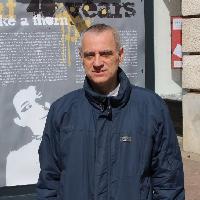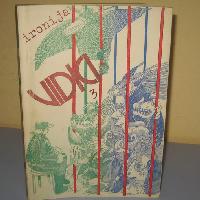The Velid Đekić collection covers beginning of rock and disco culture not only in Rijeka but also in the former Yugoslavia. While working on the books 91 decibels (2009) and Red! River! Rock! (2013), Đekić collected materials on many of Rijeka's bands that have existed from the late 1950s until the early 1980s, and on the places where young people gathered. That is why this collection testifies to the unique history of rock 'n' roll behind the Iron Curtain.
-
Vieta:
-
Temos:
-
Įkūrimo data:
-
Charakteringi eksponatai:
"Vidici" [Horizons] was one of the most prominent Yugoslav magazines for literature and culture. During the socialist period the journal was often targeted by the authorities and repeatedly banned, due to its criticism of the Communist party’s social and cultural policies. The magazine "Vidici" is kept as part of the collection "Periodicals", and does not represent a separate library unit. All the available numbers are kept in two institutions - the National Library of Serbia and the University Library of Belgrade.
-
Vieta:
-
Temos:
-
Įkūrimo data:
-
Charakteringi eksponatai:
The Youth Subcultures Ad-hoc Collection at CNSAS comprises documents created or collected by the Romanian secret police, the Securitate, about the emergence and development of Western-inspired subcultures among the members of the younger generation in Romania, subcultures which the communist regime considered harmful for their education and whose influence it thus tried to counteract. This collection illustrates that young people even in an isolated country like Romania in the 1970s and the 1980s still became exposed via Western broadcasting agencies to Western cultural goods, especially to music, which made them adopt alternative life styles and wear provocative outfits in order to build distinctive collective identities. Out of the many young people who attracted the unwanted attention of the Securitate two cases stand out and are featured in this ad-hoc collection: Clubul Regilor Liberi (The Club of the Free Kings) in Brăila and Organizația Tinerilor Liberi (The Organisation of Free Young People) in Bistrița.
-
Vieta:
-
București Strada Matei Basarab 55, Romania 030167
-
Temos:
-
Charakteringi eksponatai:
The Zagreb Gymnasium private collection consists of memorabilia from the 1985-89 period. The school was then named as the Educational Centre for Languages, and two of its classes, which retained the classical curriculum, were considered a peculiarity. It was highly exceptional at the time, because in the framework of the secondary school reform implemented by Stipe Šuvar in 1975-76, which promoted so-called “directed education,” all gymnasia in Croatia were transformed into some manner of vocational schools with the aim of preparing the students for the labour market. From the communist perspective, the classical education was deemed unnecessary petty bourgeois elitism, which prepared select students for the university and enhanced class inequality.
-
Vieta:
-
Temos:
-
Įkūrimo data:
-
Charakteringi eksponatai:




